Marijuana Crimes
Many states have legalized marijuana for medicinal or even recreational purposes. For example, the states of Colorado and Washington legalized marijuana more than 10 years ago in 2012. However, Tennessee has not done so yet. Thus, in Tennessee, illegal possession of marijuana is a crime. Distribution of marijuana is an even more serious crime. In fact, there are many different marijuana crimes in Tennessee. If you have been charged with a marijuana crime, contact a marijuana drug crime attorney such as Nashville-based lawyer Philip Clark. He has much experience in handling such cases in Nashville and the surrounding Middle Tennessee area.
Tennessee Law on Marijuana Possession
Marijuana is a Schedule VI controlled substance under Tennessee law.[1] It is considered illegal and not permitted for recreational use. Tennessee law provides: “It is an offense for a person to knowingly possess or casually exchange a controlled substance, unless the substance was obtained directly from, or pursuant to, a valid prescription or order of a practitioner while acting in the course of professional practice.”[2] Because marijuana is a controlled substance, this provision of the Tennessee Criminal Code applies.
Thus, if you are found with a small amount of marijuana, you may well be charged under this law for unlawful possession of a marijuana under the simple possession or casual exchange law. The standard penalty for this criminal violation is a Class A misdemeanor.[3] This could lead to a $2,500 fine and some time in jail. There is no specific amount required for a simple possession of marijuana charge. The Tennessee Court of Criminal Appeals bluntly wrote in 2022 that “no specific amount of marijuana is required to be guilty of simple possession of marijuana.”
However, if you are found with large amounts of marijuana, then the police may charge you with felony possession of marijuana.[4] If you are found in possession of between 20 and 99 marijuana plants, you will be charged with a marijuana offense that is classified as a Class C felony.[5] If you are found in possession of 100 or more marijuana plants, then the offense rises to a Class B felony.[6] And if you are found in possession of more than 500 marijuana plants, then you will be charged with a marijuana crime that is classified as a Class A felony.[7] The general idea is that if a person possesses a larger amount of marijuana, the person likely is engaged in distributing marijuana rather than simply possessing the drug for personal use.
Actual or Constructive Possession of Marijuana
Possession of marijuana can be either actual possession or what is known as constructive possession. Actual possession means that the police find the marijuana physically on your personage. There is no doubt that in these instances that if the substance is marijuana you have possessed it. Constructive possession is a looser concept. It applies when a person has the ability to control or possess an object. For example, let’s say a defendant is found sitting on a couch and there is marijuana hidden underneath a couch cushion. The state would argue that the defendant has constructive possession of the marijuana.
Is the Substance Really Marijuana?
However, in order to convict someone of possession of marijuana, the state must prove that the substance in question was marijuana. There have been instances where people were charged with possession of marijuana, where the substance was actually a lawful CBD product or legal hemp. Tennessee has legalized the possession and sale of hemp-derived CBD oil and CBD-infused products even though they contain small amounts of tetrahydrocannabinol (THC).
An effective criminal defense attorney like Nashville-based lawyer Philip Clark may be able to contest whether the state has adequately proven that the substance in question was really marijuana.
Contact Attorney Philip Clark of PNC Law
Needless to say, if you are charged with a marijuana crime – from simple possession to a mass amount of marijuana in terms of weight or number of plants then you desperately need an experienced criminal defense attorney. An experienced criminal defense attorney is necessary for you to fight these charges effectively. The attorney may be able to make a variety of defenses, such as constitutional-based challenges for an unlawful search or seizure under the Fourth Amendment or Article I, Section 7 of the Tennessee Constitution.
Nashville-based attorney Philip N. Clark of PNC Law is just such an experienced attorney. He is a zealous advocate on behalf of his clients. Furthermore, he has nearly twenty (20) years of experience as a former Metro police officer. He may be able to assert a variety of defenses on your behalf. If you face a marijuana crime, contact Nashville-based drug crime attorney Philip Clark at (615) 678-1033 or e-mail him at philip@tncriminaldefenseattorney.com.
[1] Tenn. Code Ann. §39-17-415(a)(1)
[2] Tenn. Code Ann. §39-17-418(a).
[3] Tenn. Code Ann. §39-17-418(c)(1).
[4] See Tenn. Code Ann. § §39-17-417(g)(2).
[5] Tenn. Code Ann. §39-17-417(g)(3).
[6] Tenn. Code Ann. §39-17-417(i)(14).
[7] Tenn. Code Ann. §39-17-417(j)(14).
